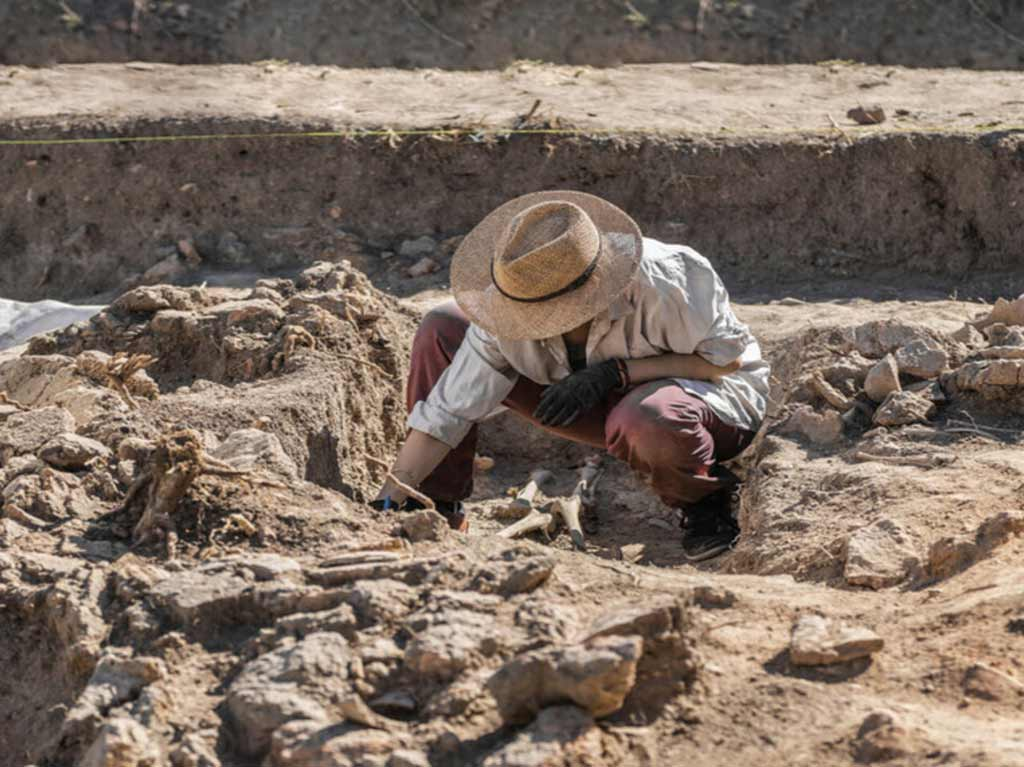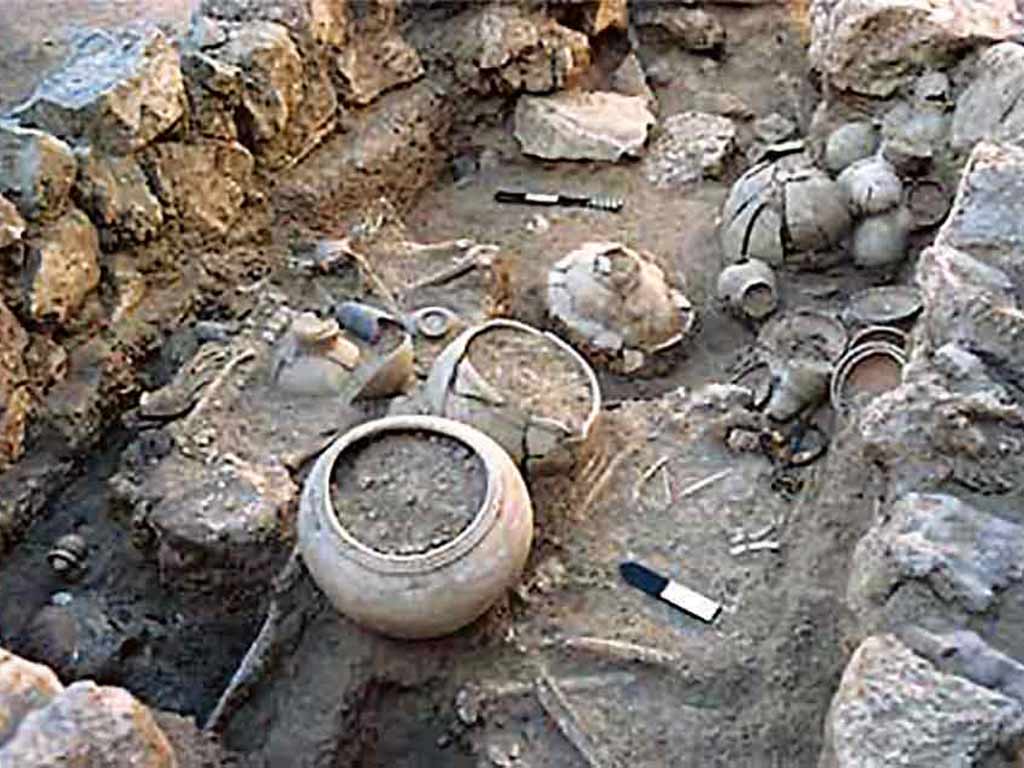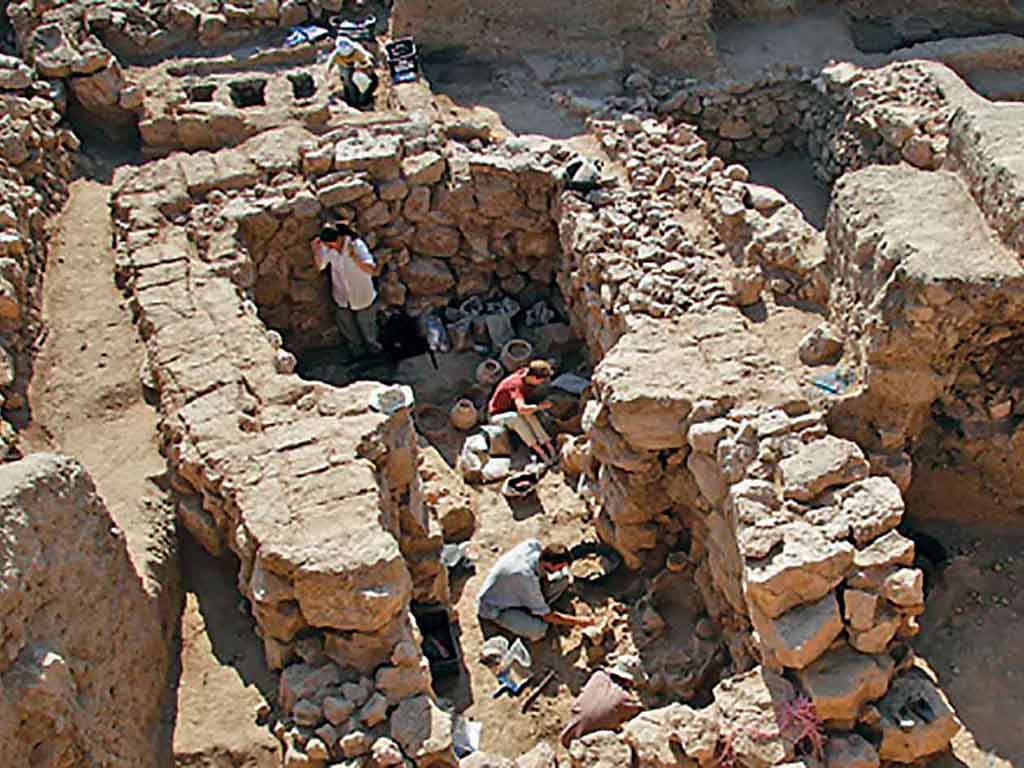
A team of archaeologists found finger-length clay cylinders dating back to around 2400 BC in the Tel Um Al-Mara area in the east of Aleppo province in northern Syria.
According to local media reports here, the findings revealed tombs dating back to the Early Bronze Age, six skeletons, gold and silver jewelry, kitchen utensils, a spearhead and intact pottery vessels.
Alongside the pottery, the researchers found four lightly baked clay cylinders with what appeared to be alphabetic writing on them.

The writing predates other known alphabets by approximately 500 years, according to the team of Johns Hopkins University archaeologists who conducted the research.
This discovery radically changes what scientists know about the origin of alphabets, and according to Glenn Schwartz, a professor of archaeology at Johns Hopkins University who discovered the clay cylinders, the alphabets revolutionized writing by making it accessible to people beyond royalty and the social elite.

Alphabetic writing changed the way people lived, thought and communicated, he added. The specialist clarified that this new discovery shows that people were experimenting with new communication technologies much earlier and in a different place than had been imagined until now.
Schwartz, co-led a 16-year archaeological excavation at Tell Um Al-Mara, one of the first medium-sized urban centers to appear in western Syria.
He added that without a means to translate the writing, one can only speculate about what the writings said and that using carbon-14 dating techniques, the researchers confirmed the ages of the tombs, artifacts and writing. (Text and photos: PL)